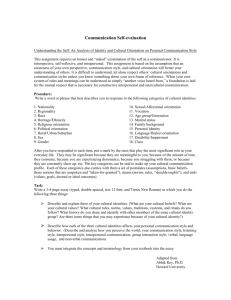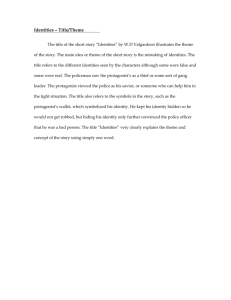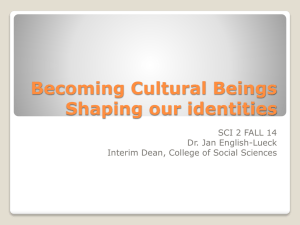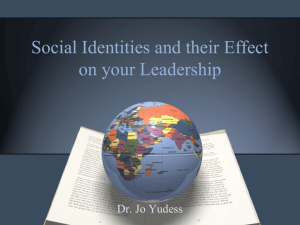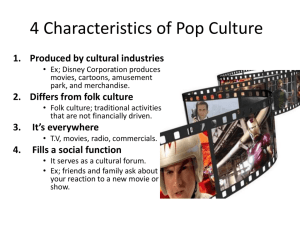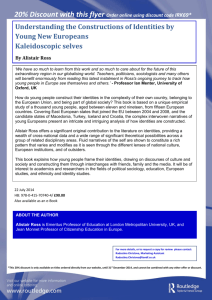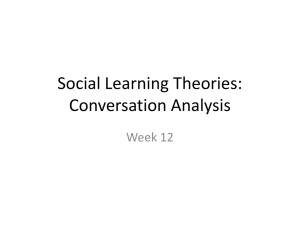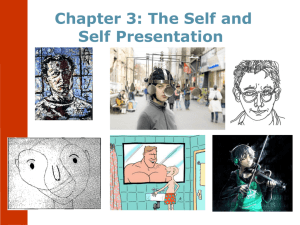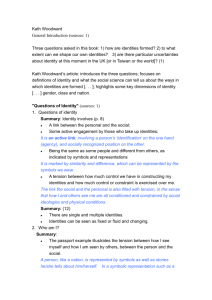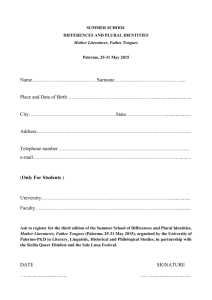Identities and career strategies of young researchers in the arts and
advertisement
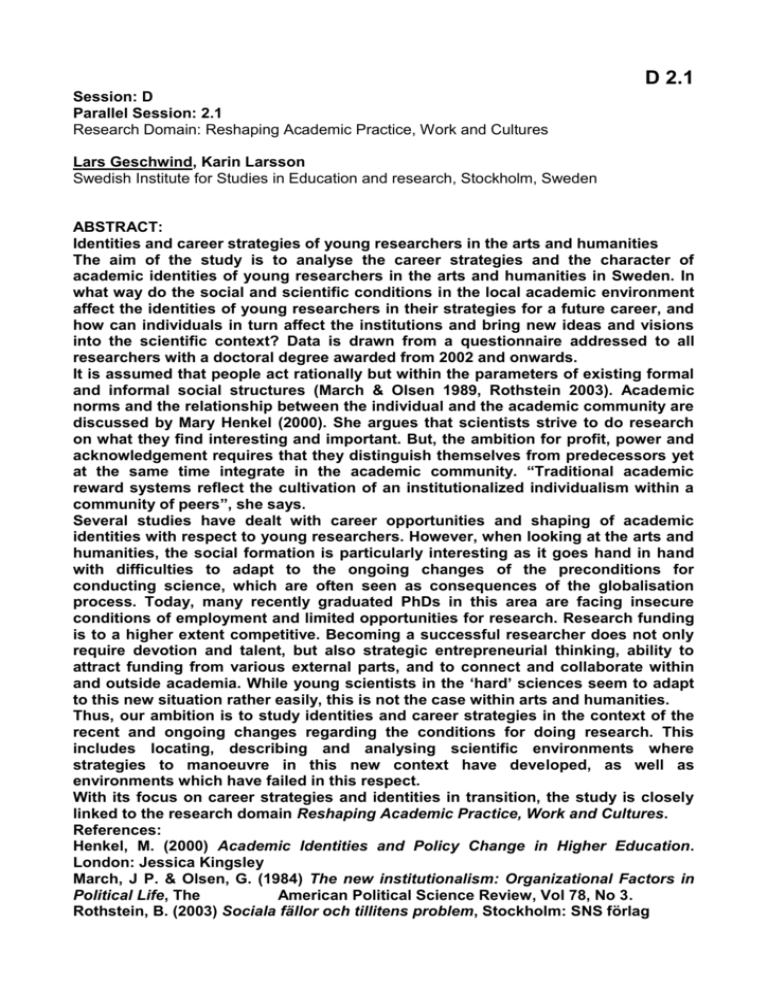
D 2.1 Session: D Parallel Session: 2.1 Research Domain: Reshaping Academic Practice, Work and Cultures Lars Geschwind, Karin Larsson Swedish Institute for Studies in Education and research, Stockholm, Sweden ABSTRACT: Identities and career strategies of young researchers in the arts and humanities The aim of the study is to analyse the career strategies and the character of academic identities of young researchers in the arts and humanities in Sweden. In what way do the social and scientific conditions in the local academic environment affect the identities of young researchers in their strategies for a future career, and how can individuals in turn affect the institutions and bring new ideas and visions into the scientific context? Data is drawn from a questionnaire addressed to all researchers with a doctoral degree awarded from 2002 and onwards. It is assumed that people act rationally but within the parameters of existing formal and informal social structures (March & Olsen 1989, Rothstein 2003). Academic norms and the relationship between the individual and the academic community are discussed by Mary Henkel (2000). She argues that scientists strive to do research on what they find interesting and important. But, the ambition for profit, power and acknowledgement requires that they distinguish themselves from predecessors yet at the same time integrate in the academic community. “Traditional academic reward systems reflect the cultivation of an institutionalized individualism within a community of peers”, she says. Several studies have dealt with career opportunities and shaping of academic identities with respect to young researchers. However, when looking at the arts and humanities, the social formation is particularly interesting as it goes hand in hand with difficulties to adapt to the ongoing changes of the preconditions for conducting science, which are often seen as consequences of the globalisation process. Today, many recently graduated PhDs in this area are facing insecure conditions of employment and limited opportunities for research. Research funding is to a higher extent competitive. Becoming a successful researcher does not only require devotion and talent, but also strategic entrepreneurial thinking, ability to attract funding from various external parts, and to connect and collaborate within and outside academia. While young scientists in the ‘hard’ sciences seem to adapt to this new situation rather easily, this is not the case within arts and humanities. Thus, our ambition is to study identities and career strategies in the context of the recent and ongoing changes regarding the conditions for doing research. This includes locating, describing and analysing scientific environments where strategies to manoeuvre in this new context have developed, as well as environments which have failed in this respect. With its focus on career strategies and identities in transition, the study is closely linked to the research domain Reshaping Academic Practice, Work and Cultures. References: Henkel, M. (2000) Academic Identities and Policy Change in Higher Education. London: Jessica Kingsley March, J P. & Olsen, G. (1984) The new institutionalism: Organizational Factors in Political Life, The American Political Science Review, Vol 78, No 3. Rothstein, B. (2003) Sociala fällor och tillitens problem, Stockholm: SNS förlag
